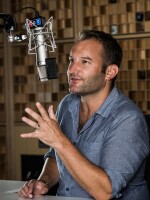STEVE INSKEEP, host:
It's MORNING EDITION from NPR News. Good morning, I'm Steve Inskeep.
RENEE MONTAGNE, host:
And I'm Renee Montagne.
President Bush insisted yesterday that the loser in the latest Middle East war was Hezbollah. He spoke after a cease-fire had been in effect for several hours, and after Hezbollah's leader, Sheikh Hasan Nasrallah, had declared victory.
The Bush administration worked hard with France and other nations to secure the cease-fire, but yesterday Mr. Bush was in no mood for a conciliatory tone as NPR's David Greene reports.
DAVID GREENE reporting:
It was the president's first day back from a 10-day vacation on his ranch in Texas, and he arrived in Washington to some good news. A fragile cease-fire between Israel and Hezbollah appeared to be holding in its first hours. Mr. Bush spent the day with Vice President Dick Cheney. They got a briefing from Defense Secretary Donald Rumsfeld at the Pentagon, then they drove over to the State Department to meet with Secretary of State Condoleezza Rice.
Mr. Bush emerged and told reporters he hopes the cease-fire endures.
President GEORGE W. BUSH: We must help people in both Lebanon and Israel return to their homes and begin rebuilding their lives without fear of renewed violence and terror.
GREENE: But his tone quickly changed, and the president sounded nothing like a diplomat hailing a halt in the fighting. If anything, Mr. Bush seemed more interested in assigning blame.
President BUSH: America recognizes that civilians in Lebanon and Israel have suffered from the current violence, and we recognize that responsibility for this suffering lies with Hezbollah.
GREENE: After delivering a prepared statement, the president was asked who won the conflict. He could have chosen to sidestep that question at a moment when the peace is precarious, but instead he called it as he saw it.
President BUSH: Hezbollah attacked Israel. Hezbollah started the crisis, and Hezbollah suffered a defeat in this crisis.
GREENE: Hezbollah, of course, has enormous influence amid the Shiite inhabitants of southern Lebanon, and figuring out a solution that would satisfy Hezbollah, the Lebanese government, and Israel wasn't easy. U.S. officials worked long hours with France and other countries to come up with the United Nations resolution that was agreeable to all the parties.
There was wrangling over language and a lot of diplomatic nuance. Mr. Bush's spokesman, Tony Snow, called the whole affair a diplomatic taffy pool. But by the time the president walked into the Treaty Room at the State Department all nuance seemed to be gone. The conflict in Lebanon, Mr. Bush declared, is simply another chapter in a long struggle between freedom and terror.
President BUSH: We saw the consequences on September 11, 2001, when terrorists brought death and destruction to our country, killing nearly 3,000 of our citizens. So we've launched a forward strategy of freedom in the broader Middle East, and that strategy has helped bring hope to millions and fostered the birth of young democracies from Baghdad to Beirut.
GREENE: Those are two cities, of course, that have seen their share of violence of late: Beirut, because of the Israeli-Hezbollah conflict, and Baghdad in large part because of sectarian strife. Mr. Bush, though, said both wars were a matter of terrorists seeing the birth of democracy and working to stop it where they can.
President BUSH: One vulnerability is that many of the new democratic governments in the region have not yet established effective control over all their territory.
GREENE: As for what happens now in Lebanon, the president offered no guarantees of peace. In fact, when he was asked when Israel might be allowed to resume its military campaign, he offered the Israelis some latitude.
President BUSH: I keep getting asked a lot about, you know, Israel's military decisions. And, you know, we don't advise Israel on its military options, but as far as I'm concerned, if somebody shoots at Israeli soldiers, tries to kill a soldier from Israel, then Israel has the right to defend herself.
GREENE: The president warned Syria and Iran that they must end all support for Hezbollah, and he warned elected leaders in the region that they cannot have one foot in the camp of democracy and one foot in the camp of terror.
David Greene, NPR News, Washington. Transcript provided by NPR, Copyright NPR.






